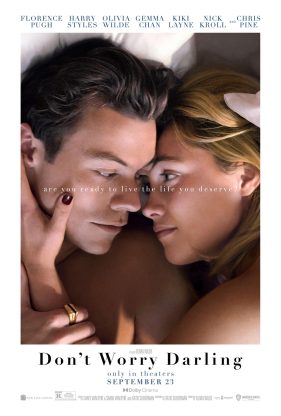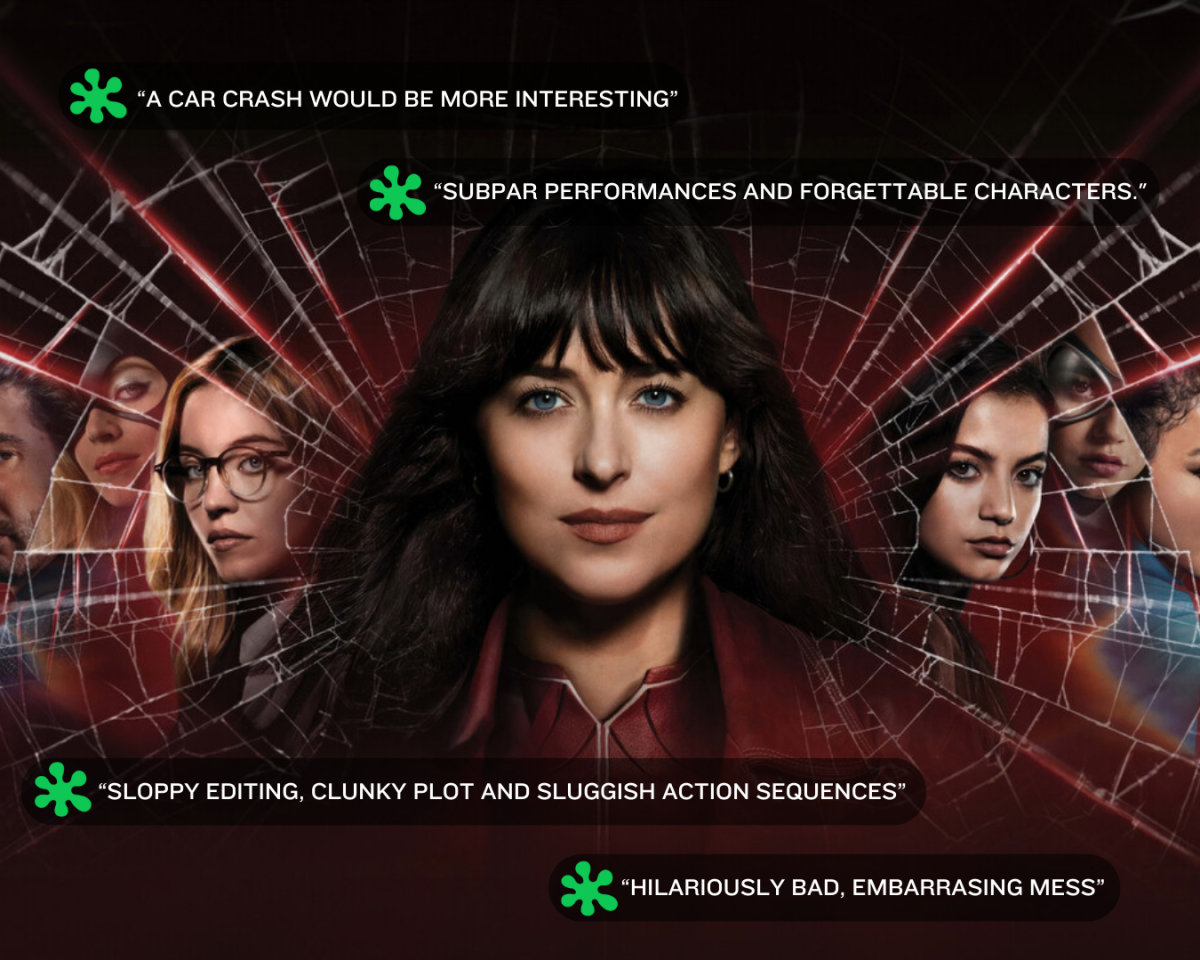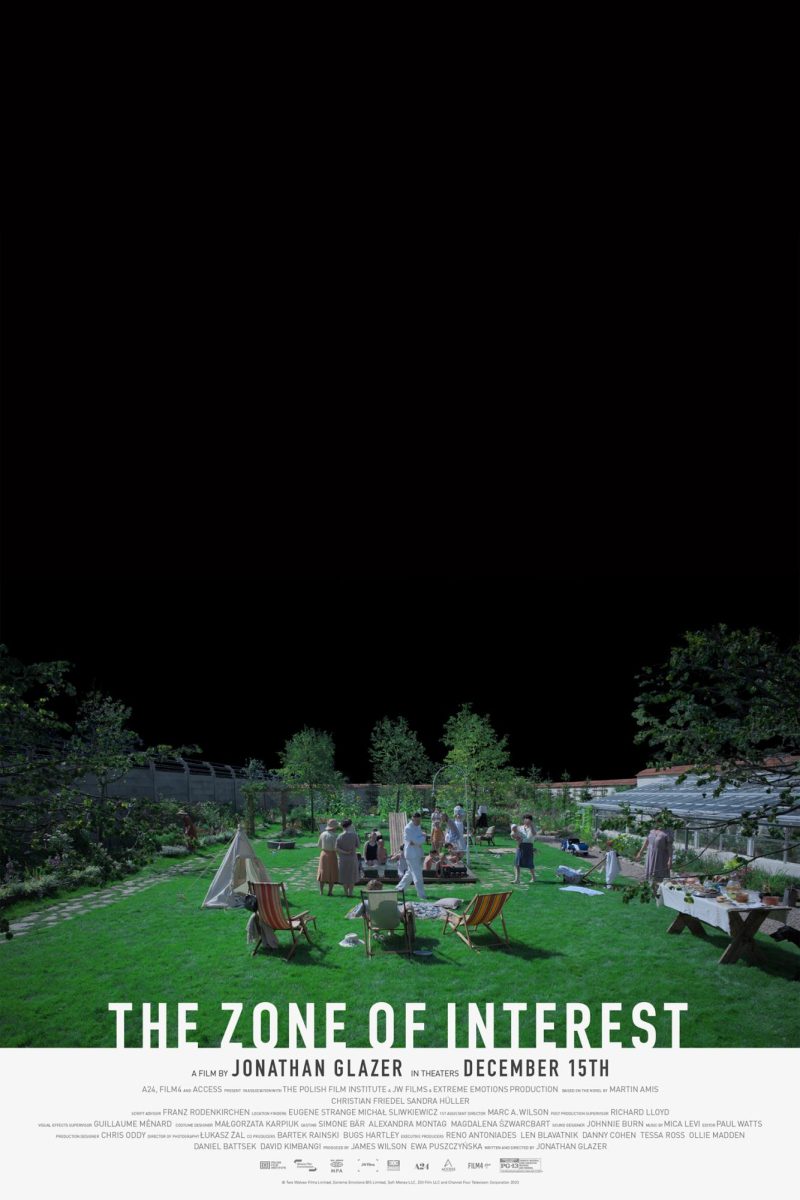
A few ideas on how to spend your hard-earned money this weekend: go shopping, splurge on some self-care, go to a concert, etc. Notice how watching “Don’t Worry Darling” is everywhere on social media, but not on this list?
Yes, it’s missing for a good reason. Released in theaters on Sept. 23, “Don’t Worry Darling” finally gave audiences the body of work that was mostly known for its behind-the-scenes feuds and gossip quandaries.
Actress turned director Olivia Wilde attempts to chase the success of her directing debut in 2019, “Booksmart,” and overcompensates for her skills as a director through predictable writing, stale symbolism and a controlling score. Watching the movie in its entirety almost makes it feel like Wilde underestimated her audience and felt the need to simplify any and all emotions the moviegoer may have after leaving their leather-bound seats.
Taking place in the perfect suburbia of Victory, the women are all smiles when bidding adieu to their adoring husbands as they head to their mystery jobs every morning, and prepare for a day of cooking, cleaning and gaslighting. The town’s leader Frank, played by Chris Pine, has an air of smugness held in every gaze and dialogue he shares with the couples in his self-described utopia. His parties are lavish and the drinks are ever-lasting as Frank and the other husbands ogle and cheer on their wives.
Minutes into the opening scene, however, something begins to trouble Alice, played by Florence Pugh, as she comes to the earth-shattering revelation that something isn’t quite right in her stellar desert town. Going about her daily routine, she cracks an egg and finds that it’s only an empty shell, much like the overall plot of the movie. The empty egg symbolizes the emptiness of Victory, obviously.
If the message wasn’t clear the first time, don’t worry! Wilde makes sure that Alice is shown cracking another egg. Then another egg. Then one more egg. Get it yet? It’s not a bad idea, per se, and the scene is well executed, but revealing the implications of this scene 10 minutes into the movie takes away any suspense and anticipation for the remainder of the film.
Alice moves past this oddity and welcomes her dashing husband Jack, played by singer Harry Styles, with open arms and a dinner spread that would put Martha Stewart to shame. There are many scenes riddled throughout the film where Alice perfects her role as the classic housewife, but Jack’s response each time becomes not only repetitive but creates a cause for concern as well. Time and time again, the audience is forced to tolerate too many sex scenes.
In an interview with Variety, she explains her reasoning for the gratuitous R-rated scenes.
“Why are we more comfortable with female pleasure when it’s two women on film?” Wilde said. “In hetero sex scenes in film, the focus on men as the recipients of pleasure is almost ubiquitous.”
Super. But how empowering is it really when you realize that the women in Victory are held against their will and stuck in a coma?
Oh, sorry, did I spoil the twist?
Wilde fails to make a compelling story as she employs overused tropes and attempts to recreate a twist we’re all too familiar with. The cinematography is fantastic and the costumes are absolutely adorable, but past that… what else was there to this movie? Beautiful landscape shots and vibrant ‘50s dresses didn’t leave critics quite satisfied, as evidenced by its score of 48 from Metacritic.
Bunny, played by Wilde herself, reveals to Alice that dying in Victory’s fake reality means dying in the real world. So, if Alice had previously killed Jack with a glass smashed into his head, what happens when she wakes up? She’s shown strapped to a bed, so is she simply laying there with a rotting corpse next to her? How is it that touching glass anytime before didn’t send her back to the real world? Why did her family not notice her disappearance?
This movie introduces a mediocre idea and refuses to provide any answers, instead producing too many questions for the audience to realize how truly terrible it was. Harry’s House was phenomenal and evidently some of Styles’ best work was held in the album, but that’s where he belongs: within an album of music. Pine and Pugh deliver convincing performances with an ordinary script but fall short of making it entertaining enough to actually believe the piece.
Many people bash Styles for saying that the “movie feels like a movie”, but the more I thought about it, the more I agreed. You go to the theater, you sit down, you see this half-baked plot of a movie, then you leave. There was nothing more to the experience, and I doubt there ever will be, no matter how many times you rewatch it.
It certainly was a movie.

















